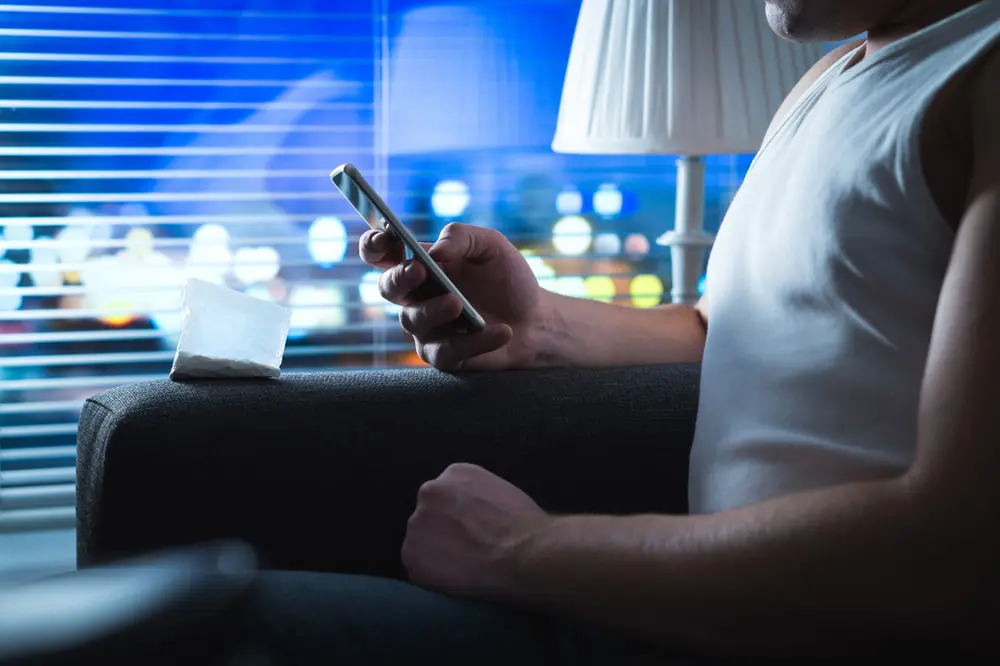24 Hour Cocaine Addiction Hotline In Massachusetts

If you are struggling with cocaine addiction in Massachusetts, you should call an addiction hotline. These numbers are staffed with specialists who can answer your questions and help you learn about recovery options. Picking up the phone is a big step, but this short guide will help you learn what to expect.
What Is a Cocaine Addiction Hotline?
A cocaine addiction hotline is a free service. You can call a hotline if you want to learn about cocaine treatment in MA for yourself, but you can also call a hotline to ask about resources for loved ones.
What Happens When You Call a Cocaine Addiction Hotline?
When you call an addiction hotline, the operator usually starts by asking a few questions to ensure you are not in immediate danger. If you or a loved one is overdosing on cocaine, the operator will tell you to call 911, and if possible, they may dispatch emergency services to you.
If no one is in immediate danger, the operator will help you assess if you need help. They will ask questions about your cocaine use, and if you are calling about a loved one, they will talk with you about your concerns. Then, they will help you figure out options for cocaine treatment in Massachusetts.
Some cocaine addiction hotlines are offered by government organizations or nonprofit groups, while other hotlines connect you directly to a treatment center.
Should I Call a Cocaine Addiction Hotline?
If you are worried about your own cocaine use or if you are worried about a loved one, you should call an addiction hotline. Here are some signs you need cocaine treatment in Massachusetts:
- You use cocaine regularly.
- Your desire for cocaine distracts you from other thoughts or interests.
- You avoid social events that do not involve cocaine.
- You spend money recklessly on cocaine.
- Your cocaine use is getting in the way of your family or professional life.
- You continue using cocaine even though you know your use is hurting your life.
- You drive or engage in other risky behaviors while using cocaine.
If you are worried about your child or any other loved one, you should look for the following signs of cocaine abuse:
- Unusual excitement or energy levels
- Dilated pupils
- Runny nose or frequent nosebleeds
- Unexplained weight loss
- Changes in friends, moving away from typical hobbies, or social isolation
- Risky behaviors
- Different sleeping and eating patterns
- Reduced hygiene
- Financial issues
Are Calls Confidential?
Calls to a cocaine addiction hotline are confidential. If you call about yourself or a loved one, the operator maintains your privacy. The only exception is if someone is in immediate danger, and the operator needs to send emergency services to you.
When you call a hotline, you do not have to worry about anyone telling your employer or notifying the police. Recovery requires a lot of trust, and the foundation of trust gets established during this phone call.
Does Recovery Start on the Phone?
Admitting that you have a problem and asking for help is the first step of recovery. When you call an addiction hotline, you are taking a step toward recovery. You are learning about the resources you need to reclaim your life and move past your addiction.
What Should I Ask?
When you call a cocaine addiction hotline, you may want to ask about the signs of addiction. If you’re calling about a loved one, you may want to note your concerns before calling so that the operator can help you assess if they need treatment.
You may also want to talk about how to find cocaine treatment in Massachusetts. If you have your insurance information, you can ask the operator to help you figure out which treatment options are covered by your plan.
What Are the Phone Numbers for Cocaine Addiction Hotlines in Massachusetts?
If you are thinking about self-harm, you can get help from the National Suicide Prevention Hotline 1-800-273-8255. This number connects you with a crisis specialist who will counsel you and help you find options.
Are you struggling with cocaine addiction? Are you worried about a loved one? Then, reach out to SpringHill Recovery today. We can answer your questions and help you take the first step toward recovery.
- Drug addiction (substance use disorder) - Symptoms and causes. (2017, October 26). https://www.mayoclinic.org/diseases-conditions/drug-addiction/symptoms-causes/syc-20365112
- Going to a drug or alcohol rehab program for the first time. (2009, April 21). https://www.verywellmind.com/what-can-i-expect-at-a-drug-and-alcohol-rehab-program-67865
- National helpline. (2019, November 6). https://www.samhsa.gov/find-help/national-helpline
- Talk To someone now. (n.d.). https://suicidepreventionlifeline.org/talk-to-someone-now/


